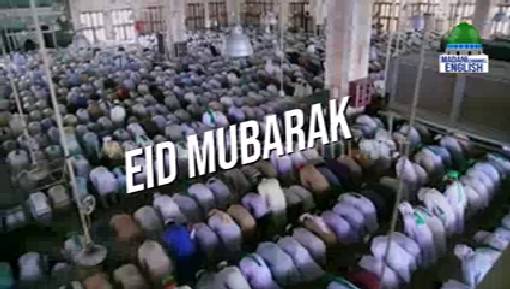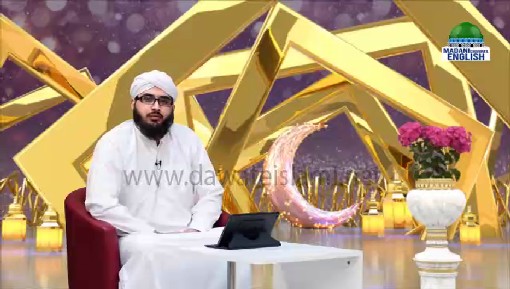How To Celebrate Eid
How To Celebrate Eid
Eid al-Fitr signifies the culmination of the holy month of Ramadan and the beginning of Shawwal, the 10th month in the Islamic calendar. This festival holds significant importance for Muslims worldwide, providing an opportunity for families to unite and share moments of joy.
Following a month of worship and devotion to Allah, the festival permits Muslims to indulge in activities they refrained from during Ramadan as prescribed by their faith.
It requires considerable effort and self-control to abstain from drinking and eating between daylight hours. Believers undertake this practice in obedience to Allah, aiming to strengthen their spiritual connection with Him.
They are supported in this effort by engaging in worship and prayers recommended during the noble month. Eid al-Fitr is celebrated to remember the success and hard work of the fasting month. It is seen as a beautiful gift from Allah Almighty to the believers for their dedication to acts of worship during this holy period.
Eid al-Fitr has evolved into an occasion that promotes unity, peace, and harmony among people of all backgrounds. The celebration of Eid al-Fitr, along with the tradition of gift exchange, serves to bring individuals closer to one another. This festival is considered a blessing from Allah Almighty, intended to foster closeness among Muslims and spread joy and love to all who interact with them.
The fast of Ramadan serves as a powerful reminder of self-restraint, spiritual consciousness, compassion, and collective worship within the Muslim community. Throughout the daylight hours, Muslims refrain from eating and drinking, while also striving to avoid any form of evil speech or negative thoughts or actions.
Consequently, fasting includes not only abstaining from food and drink but also exercising control over one's tongue, mind, and heart. It is regarded as a deeply personal act of worship, fostering a closer connection to Allah, while also serving as a form of spiritual discipline and a means of empathizing with the less fortunate. One of the key spiritual aspects of Ramadan is the cultivation of patience and self-control in daily life.
Fasting provides a unique opportunity to develop patience, perseverance, gratitude, and contentment. Through this practice, individuals deepen their faith and belief in Allah more profoundly than through any other act of worship.
Ramadan is the month during which Prophet Muhammad صَلَّى اللهُ تَعَالٰى عَلَيْهِ وَاٰلِهٖ وَسَلَّم was first blessed with the revelation of the Holy Quran. Muslims observe fasting from dawn to sunset throughout Ramadan, engaging in self-reflection and deepening their spiritual connection with Allah through recitation of the Quran.
This month is a period of devotion and contemplation, concluding in Eid al-Fitr, a joyous occasion for loved ones to gather and express gratitude for Allah’s blessings.
Its significance is purely spiritual. It is the day when Muslims thank Allah for giving them the will, strength, and endurance to observe fasting and obey His commandments during the holy month of Ramadan.
In the Muslim world, this day brings rejoicing and happiness. However, the rejoicing is not solely due to the departure of the month of Ramadan; rather, it stems from the happiness one feels after successfully completing such an important task.
Regarding the passing of the month of Ramadan, early Muslim religious leaders always felt profound sorrow when it came to an end. They believed they were being deprived of the spiritual blessings associated with the month of fasting.
The Prophet صَلَّى اللهُ تَعَالٰى عَلَيْهِ وَاٰلِهٖ وَسَلَّم said that: “whoever prays during the nights of Eid, hoping for rewards, their heart will remain alive when the hearts of others will die”. (Sunan Ibn Majah, Volume 2, page 365, Hadith number 1782)
Muslims can maximize their chances of reaping rewards and blessings in the last days of Ramadan. The holy month provides an opportunity for reflection on our deeds and repentance for our sins. It is a time for every Muslim to seek Allah's mercy, and there is no doubt about His benevolence. His doors are open to all who seek the path of righteousness.
The final days of Ramadan are known as the period of Najat, or safety from the fire of hell. Alongside the obligatory prayers, Muslims should also offer Nawafil prayers to increase their chances of forgiveness from the Almighty.
Those who repent on this holy night and pray for forgiveness are promised absolution for their previous sins. When a Muslim decides to sit in Itikaf, they completely detach from worldly affairs. During this period, the focus is solely on reconnecting with Allah and re-establishing the spiritual connection that may have been lost amidst the year's distractions.
The time for the Eid al-Fitr Prayer starts 20 minutes after sunrise. On the day of Eid, Muslims wake up early in the morning. Taking a bath is recommended on Eid, as it is important to cleanse and purify the entire body, apply perfume, and dress in one’s best clothes.
According to the Sunnah, before the Eid al-Fitr prayer, it is recommended to wear the finest clothes in line with the tradition of the companions and the Messenger صَلَّى اللهُ تَعَالٰى عَلَيْهِ وَاٰلِهٖ وَسَلَّم. Then Muslims offer the special Eid prayer in congregation, either in the mosque or an open space, followed by a sermon by the religious leader.
The prayer consists of two units, with additional Takbeers in each Rak’at. The Eid prayer is observed with special supplications, and Eid greetings are exchanged between the believers.
The Eid al-Fitr prayer occurs in the early morning after sunrise on the first day of Eid. It is considered highly important and compulsory for all those who are physically able to perform the prayer. Muslims are encouraged to participate in congregational prayers with their Muslim community on such occasions.
Muslims typically gather at mosques or in public spaces to offer special prayers known as Eid al-Fitr prayers, which consist of two Rak’ats and are led by an Imam. The prayers are followed by a sermon in which the Imam reminds Muslims of the teachings of Islam and encourages them to continue their spiritual journey beyond Ramadan.
After the prayers, Muslims exchange greetings and well-wishes with one another, saying “Eid Mubarak” to convey their joy and blessings. It is also common for Muslims to give gifts to family members, friends, and colleagues as a sign of love and appreciation.
Families celebrate Eid al-Fitr by engaging in the exchange of gifts among close relatives and children during the Eid day. Traditional sweet dishes and special treats are prepared to share with family and friends to enhance the festive spirit, while a hearty meal is enjoyed with loved ones. In order to celebrate together, friends and relatives visit each other’s homes during this time. In many cultures, special sweets and dishes are prepared for the occasion of Eid al-Fitr, such as pastries, Qatayef, samosas, and biryani. In addition to prayers and exchanging greetings and gifts, Eid al-Fitr is a time for feasting and enjoyment.
Muslims prepare special dishes and desserts to share with family and friends. The atmosphere is filled with happiness, laughter, and a sense of community. Sweet dishes are prepared at home, and gifts are given to children and to those in need. Additionally, Muslims are encouraged to forgive and seek forgiveness. This is how Eid is celebrated across the world, serving as an expression of gratefulness on a believer’s part, signifying thanksgiving for the Might and Greatness of Allah.
Before the commencement of the Eid prayer, it is obligatory for all Muslims to pay a donation called Zakat al-Fitr or Sadaqah al-Fitr (Fitrana). This charity is given to the poor and needy, allowing them to participate in the joy of Eid. Muslim communities across the globe anticipate these celebrations with enthusiasm, engaging in donations and other acts of kindness.
While many of us already fulfill this duty during this holy time, there are additional ways to help those in need. Giving away clothes we no longer wear or visiting an orphanage can make a significant difference in someone else’s life.
It is called "the charity of breaking the fast" because it marks the conclusion of Ramadan. Sadaqah al-Fitr, also referred to as Eid fitrana or Fitrah, is a charitable donation that must be paid before Eid prayer.
Anyone who meets the required standard has to pay this charity on behalf of themselves and their children who have not come of age whether it a baby born to them just on the morning of Eid day, or one becomes Muslim before the sun sets on that day. Zakat al-Fitr is paid as a token of thankfulness to Allah for enabling them to observe fasts. Its purpose is to purify those who fast from any indecent act or speech and to help the poor and needy.
One of the most significant aspects of this month is the mutual feeling of empathy and sympathy associated with it. Giving charity is one way of showing kindness to the less-privileged. There are millions out there who need our help right now.
It has become a tradition in the Islamic world to pay Fitrah and charity in the holy month of Ramadan, in order to double the blessings and rewards associated with these Islamic charities so they can celebrate Eid in a good and happy manner.
Eid al-Fitr is decided through the sighting of the moon. It is expected to be celebrated on April 11, 2024, in Pakistan.
Eid al-Fitr is an important festival celebrated by Muslims worldwide. It signifies the end of the month-long fasting period of Ramadan and marks the breaking of the fast.
Eid al-Fitr celebration allows us to express gratitude to Allah for granting us the opportunity to fast during Ramadan, seek forgiveness, and earn numerous blessings. Such significance makes Eid a time of joy, celebration, and community.
Make this Eid al-Fitr 2024 a time of kindness, togetherness, and joy. By collaborating with Dawat-e-Islami, you can join in a meaningful determination to bring Eid happiness to those going through tough times.
You can also Pay Sadaqah al-Fitr to Dawat-e-Islami today and help make this Eid memorable for those in need. Your generosity can really make a difference, bringing moments of joy and hope to those who need it most. Let's work together to make this Eid a truly happy occasion for everyone.

